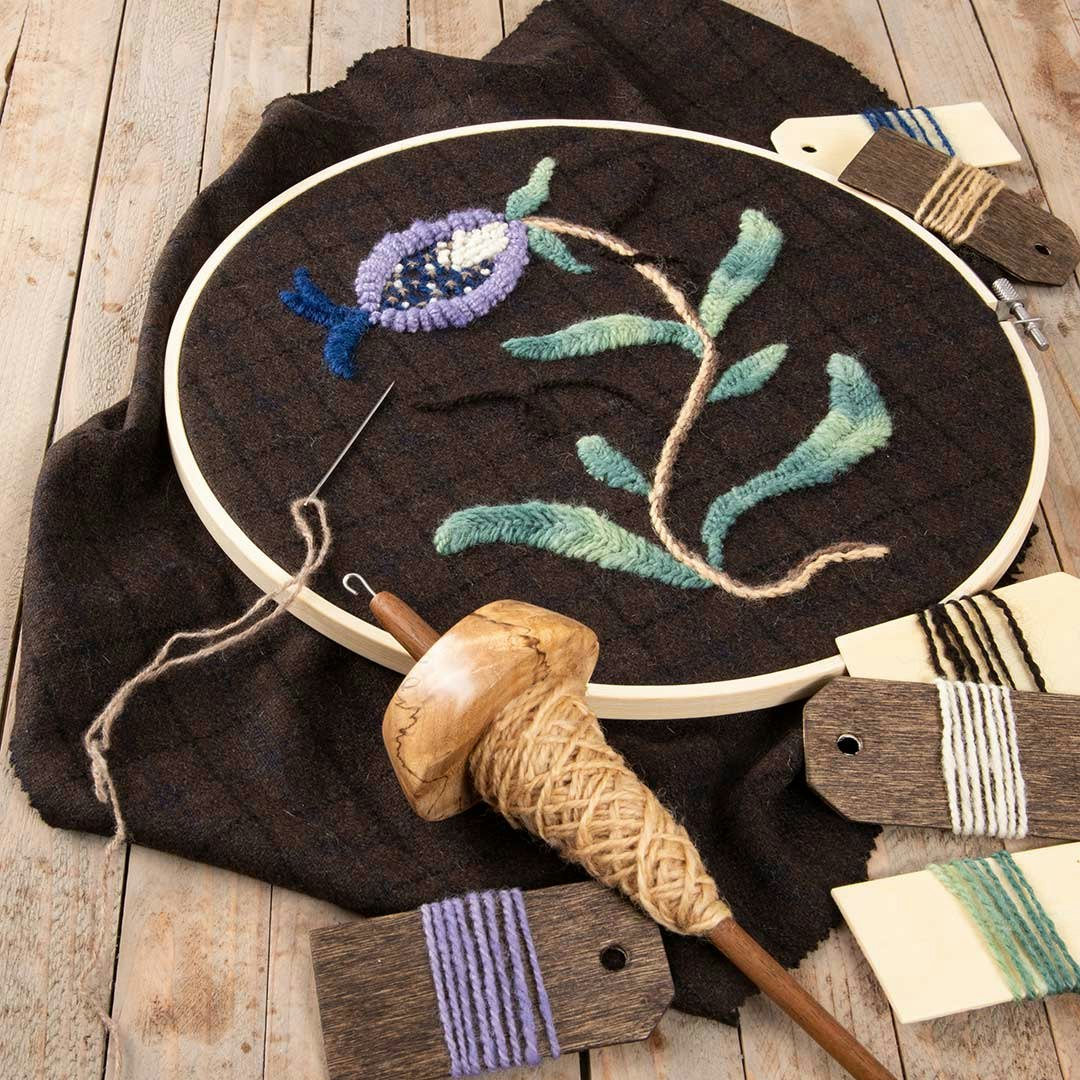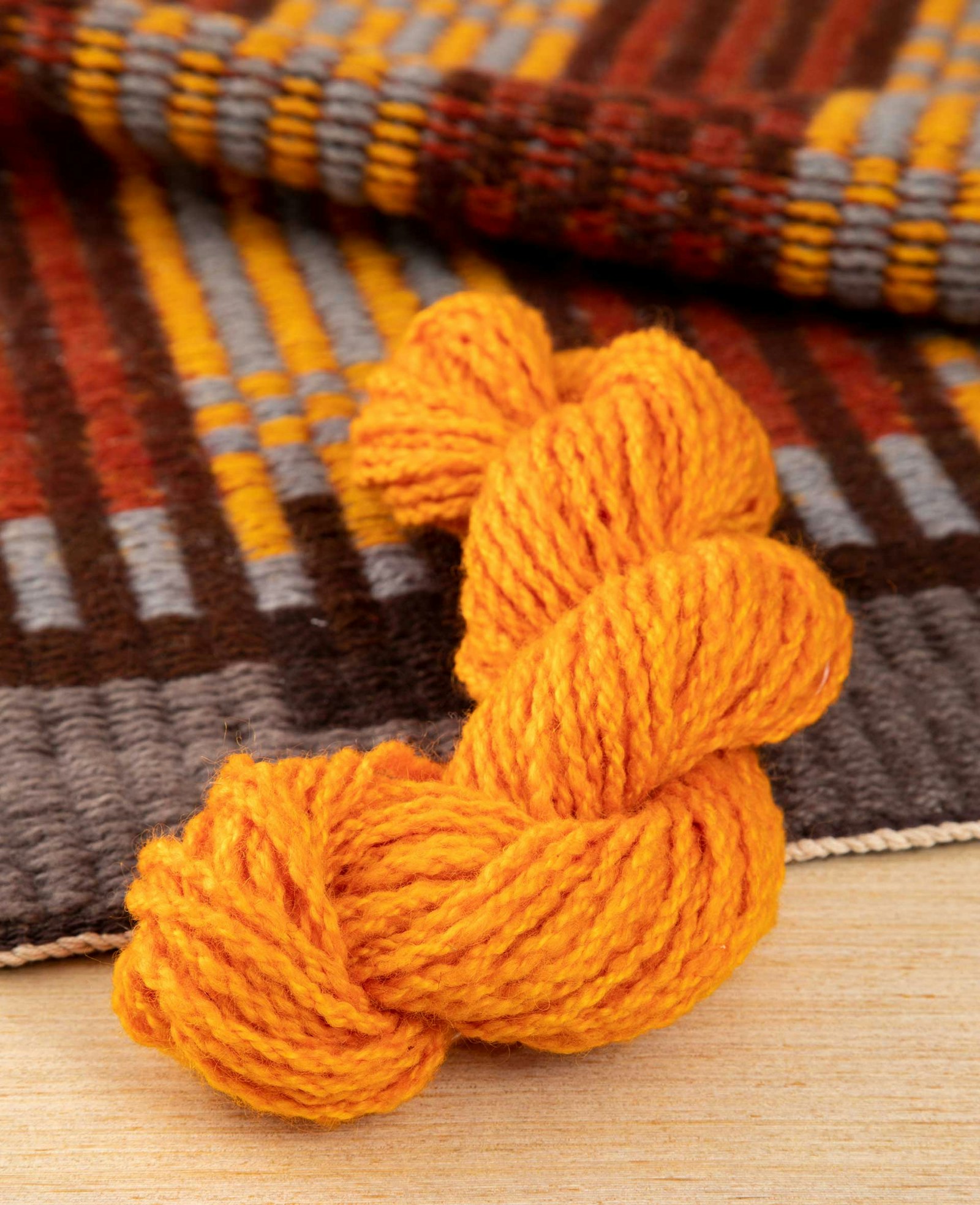Twist is one of handspinning’s core elements, but it can be tricky for spinners to discuss. Not only do we hold strong opinions about the amount and direction of twist required for a successful yarn, but the way we evaluate and describe twist varies. Some people carefully measure and calculate, while others rely on look and feel. Like many things in life, twist is more complicated than it seems. This is good news for those of us who love to explore!
Twist is a simple technology, but how we combine it with fiber choice, yarn design, and end use gives our yarns character. This character is both personal and cultural; how we spin helps to place us in the history of handspinners. In this issue, Liz Hammond-Kaarremaa shows us in a series of examples spanning millennia how twist acts as storyteller, revealing the movement of peoples, knowledge, and tools.

Sahara Briscoe’s straightforward approach to twist measurement allows her to explore everything from rugs to fine-gauge embroidery.
Today, most of us learned to spin through some combination of one-on-one mentorship, books, and other media. Fiber artist Sahara Briscoe shares with us the twist measurements she learned from Mabel Ross and how she adapted them to her own work. Sahara’s process is so quick and easy that it keeps pace with her creative flow. Measurements can be as analytical or intiutive as you choose.
In fact, Gayle Vallance offers you three different approaches to creating cabled yarns. She starts with a no-math method for intuitive spinners and finishes with a quantitative, scalable formula. All spinners are welcome! And Carson Demers offers advice for keeping our bodies safe during those hours at the wheel.
Wishing you peace and perfectly filled bobbins,
Kate
Corrections
“Reviews” Summer 2021
The contact email for Wild Mountain Time: Native Dye Plants by Dede Styles and photography by Frederick Park is incorrect. Please email [email protected] to purchase a copy. We apologize for our error.

